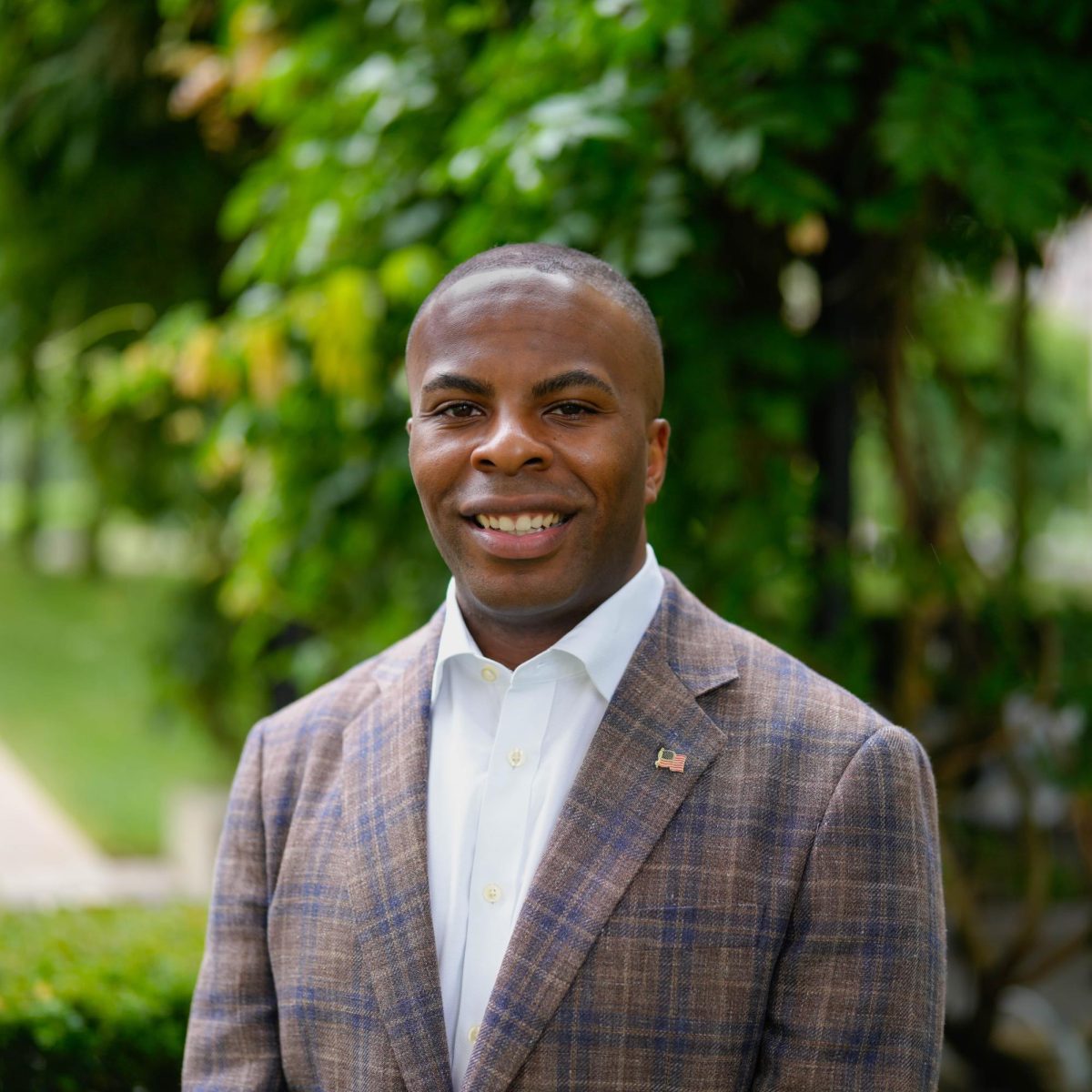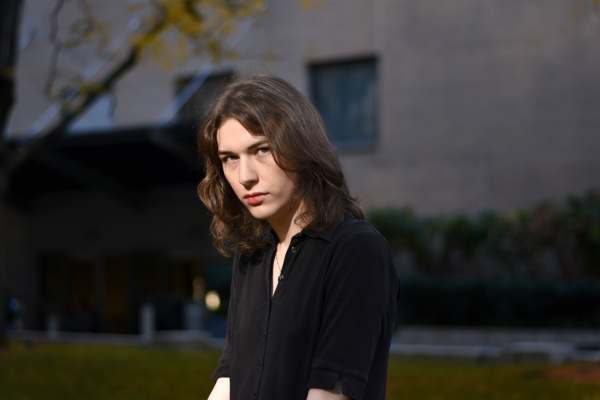The first time Tony Berry voted he was just four years old. As he cranked the lever to cast his mother’s ballot in the 1998 election, his lifelong passion for civic engagement was seeded — a passion that he carries with him in his role as Fordham’s FitzSimons fellow.
Berry is tasked to foster a culture of constructive discourse on Fordham’s campuses over the 2024-25 academic year. As FitzSimons fellow, Berry will organize events and make connections that offer pathways to civic engagement for members of the Fordham community.
One aim of the FitzSimons fellowship is to decenter cynicism and polarization in civil discourse, attitudes that appear to be widespread among young adults.
“Part of what we want to do with the FitzSimons initiative is really empower both students, faculty, administrators, alumni and the broader Fordham community to kind of remember that they have agency.” Tony Berry, Fordham’s FitzSimons fellow
Berry’s work might be cut out for him, however, as he came to Fordham on the heels of a wave of pro-Palestinian protests last spring and as the contentious presidential election looms in November. The overwhelming majority of young Americans expressed pessimism about the future and low confidence in public institutions in a poll released by Harvard University in April 2024.
Berry speculated that cynicism might stem from a sense of powerlessness to influence world events. For Berry, even small actions can be an antidote to such cynicism.
“Even if it’s something small, we can make a difference,” Berry said. “Part of what we want to do with the FitzSimons initiative is really empower both students, faculty, administrators, alumni and the broader Fordham community to kind of remember that they have agency.”
While Berry is 30 years old, he speaks with the attitude of an older man — and has the resume of one as well. Perhaps Berry’s early foray into the voting booth sparked a head start in his career.
As an undergraduate majoring in economics at the University of Alabama, he interned at Goldman Sachs and for the Congressional Black Caucus Foundation under U.S. House Representative Sheila Jackson Lee. After graduating in 2018, he worked for the federal agency AmeriCorps and three private consulting firms before coming to Fordham.
Berry recalled the awe he felt as he sat in the Capitol Rotunda in January 2018. As someone who grew up in a southern Louisiana town of 6,000 people, his sudden proximity to the levers of power in Washington, D.C. made him realize the importance of individual actors.
“I think about some of the folks throughout history who made a difference,” Berry said. “It could have been easy for any of them to say, you know, ‘I’m just one person. What difference am I going to make?’ But it’s often the people that decide to just do what they can, and then slowly but surely, momentum builds.”
Berry said his proudest moment while interning for Rep. Jackson Lee was when he volunteered to compose a report on a steel tariff. When the congresswoman used his research in a speech he said he felt honored yet sobered about our personal responsibility to do what we can.
The first steps towards civil discourse for Berry is a solid foundation.
For Berry, this mindset can be fostered in college. Berry said he views colleges and universities as important venues for civic discourse that allow for the interaction of novel perspectives. Higher education promotes learning and discovery at a time that coincides with formative years for many students.
“After a certain point, it becomes a little bit more difficult for folks to change their perspectives or be open to new ideas, whereas here on a college campus, just the nature that it fosters is more conducive to those large and extensive conversations,” Berry said.
Trust and civility, according to Berry, are necessary prerequisites for those conversations to take place. At Fordham, trust between some students and university administration is at a low point after the suspension and arrest of 11 undergraduate students participating in an encampment-style protest on May 1.
The first steps towards civil discourse for Berry is a solid foundation.
“As rudimentary and as simple as it sounds, sometimes it starts with something as simple as getting to know each other.” Tony Berry, Fordham’s FitzSimons fellow
“Before you can get to the civil discourse piece there has to be trust, and there has to be community. And I think for Fordham, one of the things that we can work on is kind of doing all those things in tandem,” Berry said.
To move forward, Berry intends to promote dialogue between students, faculty and administrators through semi-regular meetings. Berry said even personal conversations can build momentum towards collective understanding.
“As rudimentary and as simple as it sounds, sometimes it starts with something as simple as getting to know each other,” Berry said.
Ahead of the election on Nov. 5, Berry has been active in Fordham’s voter registration drives such as the all-campus drive on Oct. 15 and 16. But while voter registration has been one of Berry’s priorities, he wants to ensure Fordham students remain active and engaged past election day.
“Civic engagement doesn’t mean just showing up to vote once every four years,” Berry said. “There are a variety of different ways where folks can not only just stay informed but also get involved in the community.”
Berry recommends that students volunteer for nonprofit organizations, such as Catholic Charities of New York, which he himself volunteers with. To that end, he is working with the Center for Community Engaged Learning and other groups to find opportunities for students for impactful and rewarding work with local organizations.
Berry said his email, [email protected], is open to anyone interested in finding volunteer opportunities or joining conversations with their fellow Fordham community members.
Georgia Bernhard contributed additional reporting to this story


